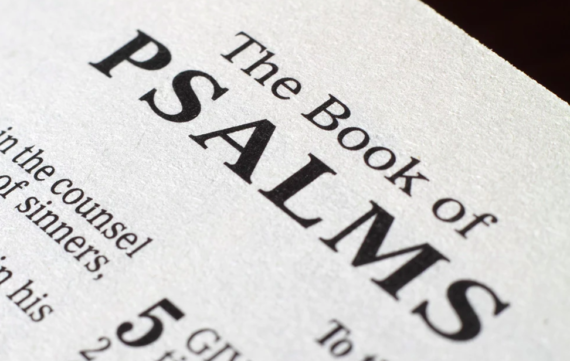By “word” we often mean communication in a broader sense than oral or written communication. That certainly is the case when we read Psalm 19. Even wordless communication is included.
The theme of this Psalm is the revelation of God and our response to it.
The Word of Nature
The word of God through nature reveals his existence and greatness.






“The heavens declare the glory of God, and the sky above proclaims his handiwork. 2 Day to day pours out speech, and night to night reveals knowledge. 3 There is no speech, nor are there words, whose voice is not heard. 4 Their voice goes out through all the earth, and their words to the end of the world. In them he has set a tent for the sun, 5 which comes out like a bridegroom leaving his chamber, and, like a strong man, runs its course with joy. 6 Its rising is from the end of the heavens, and its circuit to the end of them, and there is nothing hidden from its heat.”(1-6)
Nature has sometimes been called “general revelation.” It does not tell us the details of how we should respond; but it does tell the thinking person that there is someone far greater than any of us behind all of this.Psalm 19 and Romans 1 both tell us that there are things we can know just from observing nature:that God exists,His power and divinity. Perhaps that is why atheism has been more common in urban areas than in rural ones. Urbanites are surrounded with the works and accomplishments of man rather than with the works of God.
The Word of Scripture
The word of God through scripture reveals the blessings God has in store for us.
“The law of the Lord is perfect, reviving the soul; the testimony of the Lord is sure, making wise the simple; 8 the precepts of the Lord are right, rejoicing the heart; the commandment of the Lord is pure, enlightening the eyes; 9 the fear of the Lord is clean, enduring forever; the rules of the Lord are true, and righteous altogether. 10 More to be desired are they than gold, even much fine gold; sweeter also than honey and drippings of the honeycomb. 11 Moreover, by them is your servant warned; in keeping them there is great reward.” (7-11)
There may be a connection and contrast between this Psalm and Genesis 1-3.In Genesis we have man admiring the creation of God but then falling from his privileged position through a desire to have knowledge — and a willingness to seek it improperly.Here we have man put in awe of God through contemplation of creation and then moving on not to an improper means of increasing his knowledge, but to the good and proper means of considering God’s Torah.
Hearing the instruction of God through special revelation will give us, among other things, a perspective by which to understand nature. The “special revelation” of scripture reveals more specific information about God. In the process it revives us and gives wisdom (7). It causes rejoicing and enlightens us (8). It gives moral instruction (8-11). It gives warning and great reward (11).
Our Word to God
Our word to God should reveal a humble, worshipful response to him.
“Who can discern his errors? Declare me innocent from hidden faults. 13 Keep back your servant also from presumptuous sins; let them not have dominion over me! Then I shall be blameless, and innocent of great transgression. 14 Let the words of my mouth and the meditation of my heart be acceptable in your sight, O Lord, my rock and my redeemer.” (12-14)
Through his word we should realise our sin and be led to depend on him to keep us from sin. (12-13). Both inward and outward faults must be taken to him for correction. (14).
We should not worship nature, but we should contemplate it. Doing so will provide the sense of awe that will prepare us to hear the instruction of God. We must hear that word, and we must respond to it as we see it responded to here: in a humble, obedient, worshipful manner.

